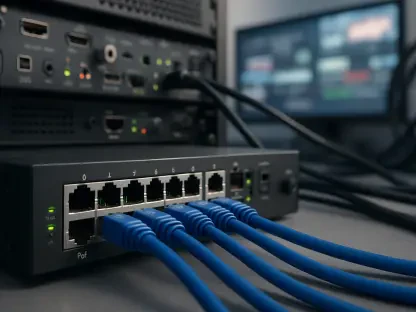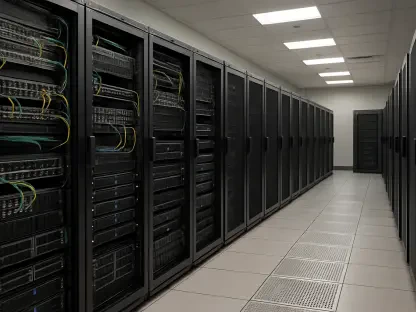The acquisition of VMware by Broadcom for $61 billion has ignited a contentious battle over market implications in Europe. At the heart of the debate is the European Union’s cloud provider association, CISPE, which has stepped forward to challenge this transaction. They filed a legal complaint with the European General Court aiming to annul the EU’s antitrust approval of the acquisition. The EU’s approval came after Broadcom committed to maintaining fair market competition, but CISPE argues these commitments fall short. The association accuses Broadcom of exploiting its newly gained market power by enforcing restrictive licensing conditions and significantly raising software prices, sometimes reportedly tenfold.
Regulatory Scrutiny and Approval Challenges
EU’s Antitrust Concerns
The acquisition underwent rigorous scrutiny by both EU and U.K. regulatory authorities due to apprehensions that it might adversely affect market competition. Both bodies initially delved into the deal, fearing potential abuse of market power and its repercussions on consumers and businesses. Although Broadcom was granted approval after assurances of maintaining competitive fairness, these promises have not placated CISPE. The association insists that Broadcom’s measures are insufficient to prevent market dominance and coercive practices. CISPE claims that smaller cloud providers, in particular, will be adversely affected, as they might be limited from purchasing and reselling VMware-based services under the revised licensing regime.
Challenges Faced by Smaller Providers
In light of the acquisition’s approval, the pressing concern remains the potential implications for smaller cloud providers across Europe. These providers risk being marginalized in the new licensing ecosystem set forth by Broadcom. Francisco Mingorance, Secretary General of CISPE, underscored the ramifications of these changes on European organizations that depend on cloud technologies. Broadcom’s altered licensing conditions could limit these smaller entities from accessing VMware-based services. This scenario presents an existential threat for many providers who play critical roles in the broader cloud computing marketplace. CISPE’s voice in raising industry-wide alarms captures the broader discourse of maintaining equitable access to technology services.
Technical Compatibility Concerns
VMware Software and FC HBA Compatibility
A central aspect of the EU investigation was VMware’s software compatibility with FC HBA chips, crucial components that connect servers to storage systems. Concerns emerged over Broadcom potentially terminating support for competitors’ FC HBA products, which could disrupt hardware interoperability. Broadcom responded to these concerns during the review process by pledging to sustain this support. Further, they committed to making FC HBA chips’ drivers open-source. This move aimed at placating apprehensions and ensuring continued compatibility, safeguarding the competitive balance in the hardware sector.
Broader Implications on Market Fairness
The focus on technical compatibility exemplifies broader issues surrounding market fairness and competition. Ensuring interoperability across software and hardware is vital in sustaining healthy market dynamics. The rumored standardized practices promised by Broadcom aim to ease integration concerns and maintain consumer trust in VMware products. However, CISPE remains unconvinced that Broadcom’s commitments are enduring, raising the alarm over potential disparities in the technology ecosystem. For many stakeholders, the consequences of this acquisition may ripple through the sector, affecting innovation and growth prospects.
Lessons from Previous Industry Scrutiny
Microsoft Licensing Incident
Past incidents, notably CISPE’s confrontation with Microsoft over its licensing terms, highlight ongoing pressures in the technology industry to safeguard competitiveness. CISPE previously filed complaints aimed at addressing Microsoft’s licensing conditions, which were seen as restrictive and monopolistic. This legal action subsequently resulted in a settlement that offered more favorable licensing terms for industry players. Observers of the Broadcom-VMware deal draw parallels to this past conflict, suggesting that active advocacy can drive transformative changes.
Regulatory Interventions and Monopolies
The focus on Broadcom parallels historic scrutiny of powerful tech companies regarding monopolistic practices. Regulatory interventions worldwide are increasingly spotlighting large technology firms’ acquisitions to ensure compliance with antitrust laws. Unlike static industries, the technology sector requires constant vigilance and regulatory foresight to guard against monopolies. CISPE’s actions against Broadcom are part of a broader narrative where legal interventions aim at maintaining fair competition, ensuring smaller providers can flourish and contribute to industry advancements.
Navigating the Evolving Tech Landscape
Future Sector Outlook
Looking ahead, the tech landscape’s evolution is marked by growing mergers and acquisitions, demanding constant regulatory oversight. CISPE’s legal challenge underscores the necessity for robust frameworks safeguarding competition principles amidst consolidation trends. As Broadcom seeks ways to integrate VMware, maintaining transparency will be crucial to foster trust and buyer confidence. This precedent may prompt further scrutiny and interventions from similarly affected parties within the sector, ensuring equitable market practices.
Potential Solutions and Industry Adaptation
For industry stakeholders, adaptation remains the keystone to navigating these challenges. Solutions aimed at fostering alliances among providers could pave the way for collective bargaining, strengthening advocacy efforts. This unity is vital for influencing regulatory frameworks consistent with technological advancements. Providers can leverage this opportunity to demand transparent licensing practices and fair pricing models. CISPE’s active role in voicing these concerns suggests a path toward collaborative advocacy, ensuring a balanced technological marketplace.
The Implications of CISPE’s Legal Challenge
Broadcom’s $61 billion acquisition of VMware has sparked a fierce debate over potential market effects, particularly in Europe. At the center of this controversy is the European Union’s cloud provider association, known as CISPE, which has taken a firm stand against the transaction. CISPE recently took legal action by filing a complaint with the European General Court, seeking to overturn the EU’s antitrust approval of the deal. This approval was initially granted after Broadcom pledged to uphold fair competition in the market. However, CISPE contends that these promises are inadequate. The association raises serious concerns, accusing Broadcom of using its enhanced market influence to impose restrictive licensing terms and drastically increase software prices, reportedly by as much as tenfold. Such actions, according to CISPE, threaten the competitive balance of the industry, potentially disadvantaging smaller players and stifling innovation. The outcome of this legal battle may significantly impact future acquisitions.









